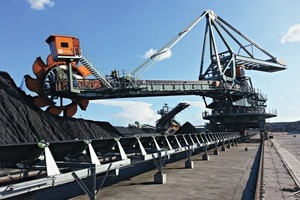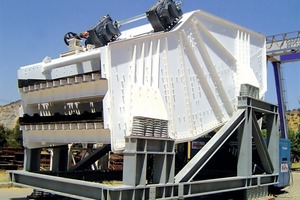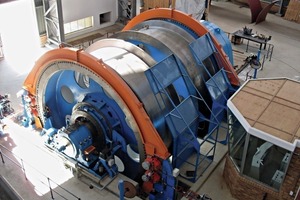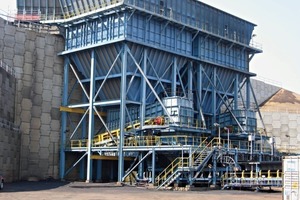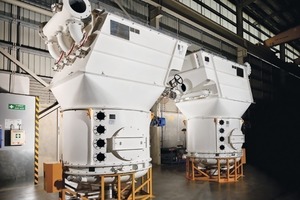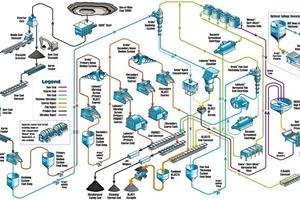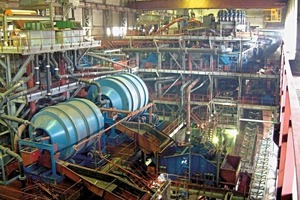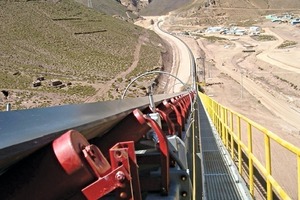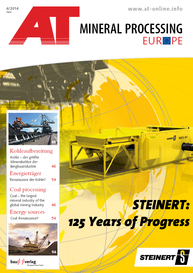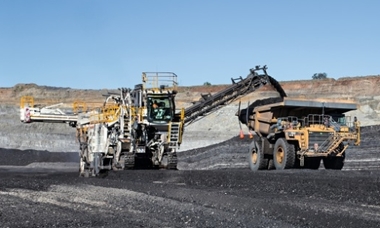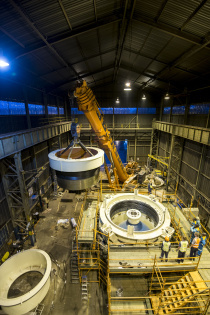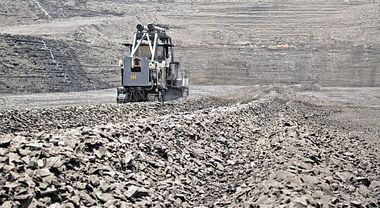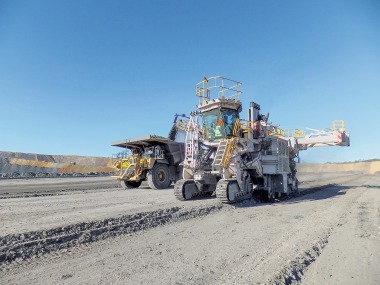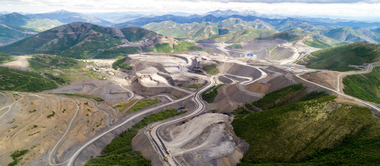Coal – the largest mineral industry of the global mining industry
As developing countries continue to grow, coal remains the largest mineral industry in the world. FLSmidth offers the whole flowsheet of equipment and solutions to handle and process coal operations.
The coal industry
Coal is the largest mineral sector of the global mining industry in terms of the amount of rock mined and processed, and subsequent product value. Indeed, the volume of coal and rock processed in the coal industry amounts to more than the rest of the world’s mining industry combined. At present, over 40 % of the world’s electrical power and over 25 % of its primary energy is derived from coal. In the developing world, over 80 % of power is generated from coal. Despite the continued environmental concern over the use of coal as a fuel for power generation, the overwhelming majority of the world’s population is still dependant to some degree upon coal as an energy source.
At present, the substitution of alternative energy sources (like natural gas and nuclear power) for coal in Western cultures is far outweighed by the increased use of coal in developing nations like China and India. The demand for coal is built in these nations by the increasing need to generate vast amounts of electrical power for industrialization and growth of the middle classes, which consume larger amounts of electricity. Burning coal is still the cheapest way to generate electricity. Consequently, coal output is predicted to rise to roughly 10 billion tonnes per annum by 2020 from the current level of around 8 billion tonnes per annum in 2013.
Despite the media reports of the decline of the coal industry, particularly in western Europe and the USA, it will remain one of the world’s largest primary mineral industries for many years to come. Experts are continually striving to capture CO2 from coal combustion, and if successful, coal will continue to hold its position as the dominant global energy source for the world’s needs for the next 100 years.
FLSmidth’s coal flowsheet
FLSmidth has one of the unique offering within the coal industry as the only supplier with a complete portfolio of the equipment needed in the coal flowsheet. The equipment moves coal from the mining process-whether underground or on the surface-transports it over long distances; crushes, homogenizes and processes it to remove impurities; and then blends and dispatches it to road, rail or sea for transport. In addition, FLSmidth provides the equipment that can then unload those trucks, trains and ships.
Since the recent acquisitions of Ludowici and Decanter Machine, coal has become the third most important market for FLSmidth, after cement and copper. Servicing the coal industry makes up approximately 20 % of the total business at present, and this percentage is rising.
The product offerings for coal are shared by our Material Handling (MH) and Mineral Processing (MP) divisions. Within MH, the FLSmidth-products start in the mine at the coal face. In underground mines, our BuffaloTM range of feeder breakers collect the coal, which has been cut by mining machines, and reduce it in size to allow for it to be transported by conveyor to the base of the shaft. Here the coal is elevated to the surface using a vertical conveyance system that is driven by a winding engine mounted on a large head-frame at the surface. The skips that carry the coal and rocks to the surface, and the cages that transport workers to and from the mine, are designed and manufactured by both the Canadian and South African offices. South Africa also designs and supplies the high-powered winding engines that lift the skips and cages.
Many of the large, new coal mines are open pit mines on the surface rather than underground. Unlike underground mines, this type of mine involves removing many millions of tonnes of barren rock (called overburden) before the coa l seams can be accessed. This means that vast tonnages of rock and coal need to be moved, crushed, stored and often conveyed over long distances in the process.
Conservatively, at least 5 tonnes of waste rock/overburden are removed for every tonne of usable coal that is produced. Hence, the sum of total coal and rock removed in 2013 is around 48 billion tonnes. To put this in perspective, at a bulk density of around 1200 kg/m3, the volume of the total tonnes removed (40 billion m3) is the equivalent of the land mass of the country of Denmark (around 40 billion m2), to a depth of approximately 1 m, each year.
In modern opencast mines, in-pit crushing and conveying (IPCC) systems are increasingly being used to move the rock and coal instead of the traditional truck and shovel methods. FLSmidth is a leading supplier of coal mine IPCC systems, which comprise products such as apron feeders, FLSmidth ABON® mineral sizers, long overland conveyors, mobile conveyors, mobile stackers and BuffaloTM feeder breakers. The company recently completed a 12 000 t/h system for a large Indonesian customer impurities and barren rock that have been in Kalimantan using this equipment.
Once the overburden is removed, the coal can be accessed and is transported by conveyor from the mine to the processing facilities. Sometimes the processing out loading systems for the coal are located many kilometers from the mine. FLSmidth’s specialized overland conveying systems are able to follow the topography of the area with curves and bends to transport the coal efficiently over the long distances. Prior to processing, the coal is stored and homogenized using stacking and reclaiming machines designed by FLSmidth’s office in Wadgassen/Germany.
Before the coal can be used, inherent and barren rock that have been mined with the product are removed in a coal preparation plant. FLSmidth’s Mineral Processing division has all the products required to size and process the coal to remove impurities and barren rock.
The separation process generally utilizes the differences in specific gravity of the carbon minerals and waste, or differing properties of the minerals’ surface chemistry to separate the raw coal into clean coal and waste material.
Almost all coal separation processes use water and consequently require a great deal of dewatering equipment as well. The combined technologies of Ludowici, Krebs, Dorr-Oliver, EIMCO and Decanter Machine cover the complete coal preparation process from screening, classification, flotation, centrifuging and thickening through filtration dewatering. Due to the breadth of product offerings in coal processing, FLSmidth is able to design complete plants around this step of coal preparation.
FLSmidth offers a unique solution to the dewatering and disposal of fine tailings as a conveyable and stackable solid, rather than the traditional method of a liquid slurry into a tailings dam. In addition to the environmental gains, the solution can also avoid expensive (and sometimes damaging) sourcing and pumping of water great distances, in order to maintain production. With both in-house dewatering and material handling technology FLSmidth is capable of offering a complete solution.
FLSmidth continues to move forward and progress in bringing automation expertise to the coal industry, particularly in the areas of stockpile management and sampling. Customers can feel confident that their investment in FLSmidth equipment is backed by world-class aftermarket support that is customized to each customer’s level of need and expectation. The global network of support personnel, coupled with the local customer service teams gives assurance of a fast on-site service. FLSmidth also offers operation and maintenance (O&M) contracts in the coal industry.
FLSmidth Wiesbaden GmbH
Am Klingenweg 4a
65396 Walluf/Germany
FLSmidth Wadgassen GmbH
Karl-Koch-Straße 1
66787 Wadgassen/Germany
Author: David Woodruff,

